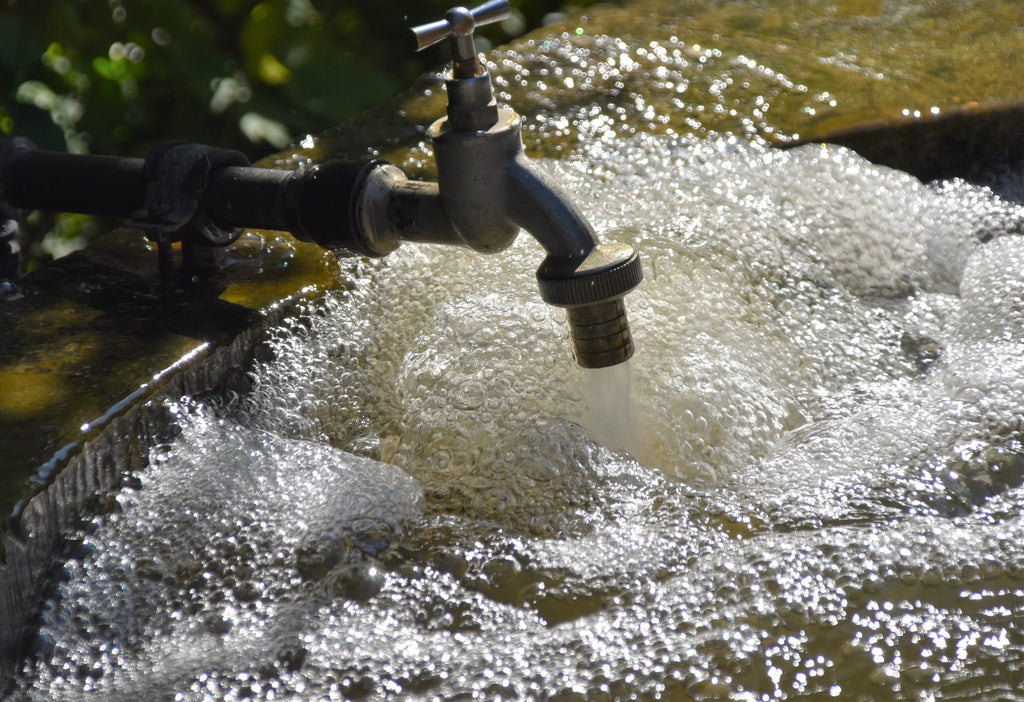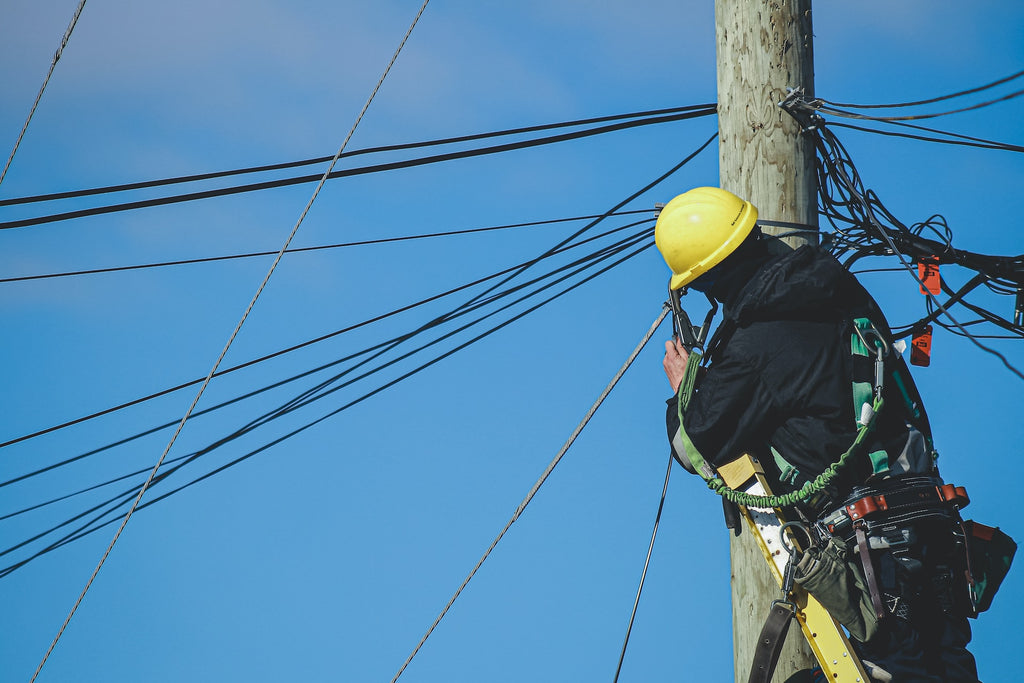Regardless of the state you live in, there are essentials you cannot live without. They include water, electricity, and gas. These basic needs and others make your life convenient and comfortable.
Most, if not all companies will classify them as utilities, billing you monthly or quarterly. So, what are utilities? Why do utility costs fluctuate and how can you reduce their cost? Let’s find out!
What are Utilities?
Utilities are the basic services that keep your home running. They include water, sewer, electricity, and recycling. You can also consider internet, phone service, and cable TV subscriptions as utilities.
What are The Common Home Utilities?
-
Water and sewer
 Water is the most crucial utility in your home. It includes water used to wash your dirty laundry to that which you use to take a shower. Ideally, a meter tracks your usage and provides a summary of your monthly consumption.
Water is the most crucial utility in your home. It includes water used to wash your dirty laundry to that which you use to take a shower. Ideally, a meter tracks your usage and provides a summary of your monthly consumption.
Your local water company will then send you a bill, which you have to pay to access water in the next month. The company can send monthly or quarterly bills.
-
Trash and recycling
A city’s waste management company will collect waste from apartments and homes. This service helps bolster public health and the overall cleanliness of a community. The company may collect garbage every week or two.
They will then send a bill every month to the homeowner or tenant. Ideally, most waste companies have a collection program that separates recyclables and nonrecyclables. As such, they might collect the former more often than the latter.
-
Electricity

The electricity bill is yet another important utility. It is in fact one of the biggest utilities for most American households. Electricity enables the use of appliances such as computers, mobile phones, and kitchen devices.
Like water consumption, a meter tracks your daily usage, providing your usage summary at the end of the month. As you’d expect, you have to pay the bill every month to avoid the termination of your electricity connection.
-
Natural gas
While all homes have electricity, not all have a gas connection. Gas can be used to power your air conditioner, heat your water, and cook. Like electricity and water, a meter is used to track your daily consumption. Your local gas provider will bill you monthly or quarterly.
Factors Influencing Utility Costs
-
Location
Utility costs can vary based on where you live and how electricity is produced. While some states might use hydroelectric power, others might get power from burning coal. As you’d expect, generating electricity from coal is more expensive than using water.
Likewise, the transportation of natural gas also affects your utility costs. Ideally, it will be delivered to your home through a complex system of high-pressure pipelines and distribution lines. When paying for your utility bills, companies will often consider such distribution systems.
The geographical location and terrain also affect the utility costs. If you live in a hard-to-access area, you’ll pay more than a homeowner near a city. And if the power plant is near you, the electricity bill might be lower.
-
Consumption patterns
How you consume electricity also determines your utility costs. If you use large appliances, run your air conditioner, and engage in other energy-intensive activities, you’ll foot a higher bill.
As such, it is crucial to use electricity more efficiently to lower your bills. For example, you may use your air conditioner, electric heat, and water heater less often. Alternatively, you may transition to solar energy.
-
Supply and demand
Energy demand also affects utility costs. On a normal month, most electricity-generating companies will use cost-effective sources of energy such as coal and solar. However, when the demand for electricity increases, they may transition to more costly options.
This will reflect on your monthly electricity bill. Besides, unprecedented events such as natural disasters or unrest might also increase demand, which will in turn affect the utility cost.
-
Regulations
Regulations vary from state to state. While some states might provide a regulated framework, others might work with unregulated pricing. Environmental regulations can also affect how energy is generated, transmitted, and consumed. With emissions limits, companies might adopt cleaner technologies, which might affect energy prices.
Other states might have consumer protection policies ensuring fair billing, transparent pricing, and reliable services. This can democratize the production of electricity and the distribution of gas, potentially lowering utility costs.
-
Seasonal changes
Seasonal changes affect how we live. During hot summer months, most homeowners will use their air conditioning systems more often, which can lead to higher electricity bills. Likewise, you are more likely to use heating systems in colder seasons which can affect utility costs.
Furthermore, summer watering tends to increase our water consumption. And waste is more prevalent during warmer seasons than colder ones. These changes in behaviors can affect your utility bills.
Strategies for Reducing Utility Costs
-
Use renewable energy
The most effective way to lower your utility costs is to use renewable energy. And the most viable for your home is solar energy. With solar, you can generate your electricity and even contribute to the national grid. As such, you’ll purchase less electricity from the grid, leading to reduced electricity bills.
1. Consider a portable solar panel
For this, you can opt for the BLUETTI PV420 Solar Panel. The foldable and easy-to-use panel allows you to place it anywhere in your backyard. While you cannot install it on your rooftop, you can position it where there’s ample sunlight.
With it, you can charge your phone, laptop, and other sensitive gadgets. It has a long lifespan and comes with anti-scratch and dust features. You can even use it for outdoor activities such as camping.
2. Use a power station
And if you want to store excess solar energy, you can opt for the BLUETTI AC180 Portable Power Station. With a maximum power output of 1800W, it can power your mobile phone, refrigerator, portable AC, and lighting system. The best part is that it can power such appliances for over five hours.
Recharging is seamless since you can do so with AC power, a generator, solar, or your car. This will significantly reduce your utility costs, especially during the hot summer months.
If the portable power station does not meet your electricity needs, you can opt for the more robust BLUETTI EP500 Solar Power Station. With a maximum power output of 2000W, you can rest assured it will provide you with ample energy.

And since it comes with 15 outlets ranging from 110V AC, 110V NEMA L14-30, and PV Input and T500 Input options, you can power just about any device in your house. All you need is a 1200W MPPT solar panel and you are good to go.
The best part is that it is easy to transport as it features rubber wheels. If you want to use renewable energy, consider buying a sturdy solar panel and a robust backup system. Combined, you can power your home for days, reducing your electricity bills.
-
Use energy-efficient products
Another way to reduce utility costs is to use energy-efficient appliances. For example, instead of using conventional bulbs, you can opt for LED lighting. It uses less electricity and has a longer longevity.
Using appliances with Energy Star ratings can also reduce your electricity bill. As you’d expect, they are engineered to consume less electricity than conventional options.
Smart thermostats ensure the heating of your house in favorable conditions, meaning your heater won’t run day and night. Furthermore, you can conduct regular maintenance to keep your appliances operating efficiently.
-
Adopt water conservation methods
As mentioned, water bills are among the biggest in most American households. Interestingly, most of the water goes to waste. Fortunately, conducting regular maintenance can fix leaks that increase your utility costs.
In addition, you can install low-flow toilets, showerheads, and faucets to mitigate water wastage. If you live in a rainy state, collecting rainwater can significantly reduce your utility costs, since you’ll be using the water to wash your car, irrigate your backyard, and other non-potable needs.
-
Change energy consumption behavior
Another way to cut your utility costs is to change your consumption behavior. For example, you can open blinds during the day to take advantage of natural light, rather than using bulbs.
Cooking efficiently can also reduce gas consumption. Instead of cooking thrice per day, you may cook two large meals. Adding shade around your home can reduce cooling needs as trees and shrubs act as natural coolants.
How to Set Up Utilities?
So how do you ensure you have constant water, gas, and electricity? Let’s find out.
-
Get to know your providers
You’ll need to first determine your utility providers. Get to know who’ll be supplying you with electricity, water, internet, and other utility needs. Since providers differ with states, it is prudent to consult with your local authority or management company.
-
Contact the utility providers
Now that you know your providers, it is time to contact them. Depending on your situation, you might transfer, cancel, or set up new utilities. Whichever the case, contacting them will allow you to gather all requirements before going through the application process.
-
Verify everything is working
If you are moving to a new home, ensure that utilities in your previous home have been canceled and those in the new home are turned on. You don’t want to pay for two addresses. Also, make sure to change your address and alert your current providers so you can receive and pay your bills on time.
FAQs about Home Utilities
-
What is a utility bill?
This is a monthly or quarterly payment for essential services such as electricity, water, waste management, and gas.
-
What utilities are the most expensive?
Electricity and water are the most expensive
-
What sector are utilities in?
Utilities are in the infrastructure sector since they include companies that provide essential services such as water and electricity.
Final Thoughts
Utilities are what make everyday life comfortable and practical. With ample water, uninterrupted electricity, and internet, you can work while enjoying your life.
That said, you should embrace sustainable practices such as using renewable energy and reducing water wastage to keep utility bills at a minimum.








































































